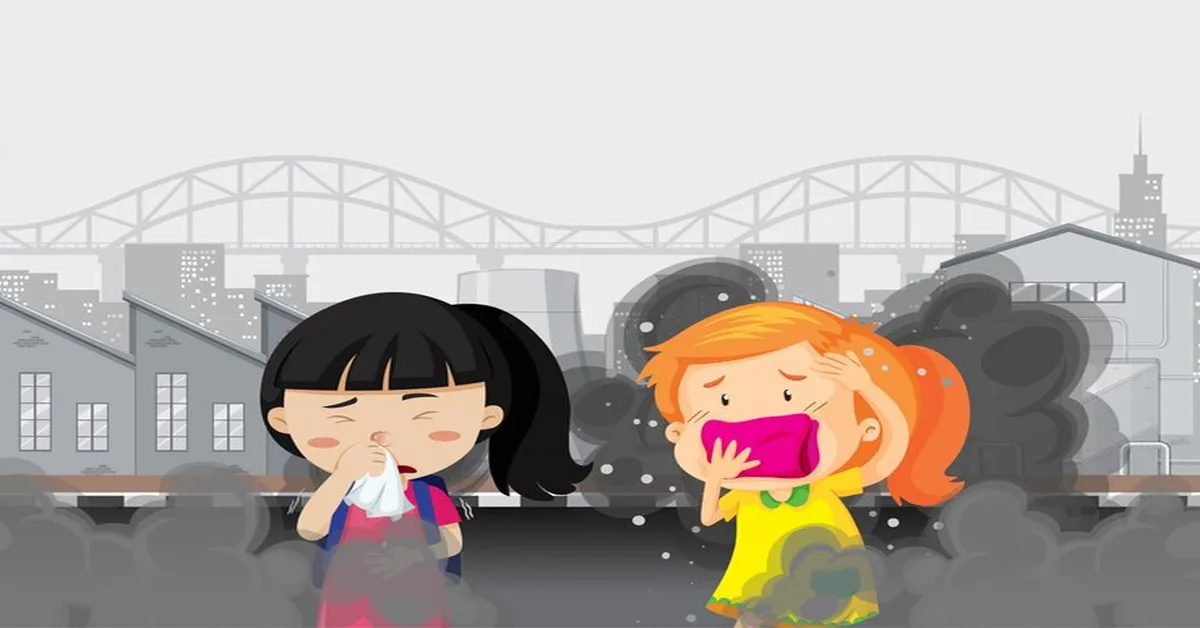Parenting can be challenging, but when the dynamics shift due to the complexities of adult children who exhibit toxic behaviors, the challenge becomes even more overwhelming. The situation becomes even more stressful when, as a grandparent, you find yourself taking on the role of a primary caregiver to your grandchildren. Navigating this complex scenario requires when your kids are toxic and you have their kids not only resilience but also a deep understanding of family dynamics,when your kids are toxic and you have their kids emotional well-being, and legal implications.
This article explores the topic of dealing with toxic adult children and the responsibilities that come when you are entrusted with their children. We will delve into the signs of toxic behavior, the impact it can have on you and your grandchildren, legal considerations, and most importantly, how to protect your well-being and the well-being of the children under your care.
1. Understanding Toxic Behavior in Adult Children
Toxic behavior can manifest in various forms, and when it comes to adult children, these behaviors may include manipulation, emotional abuse, irresponsibility, when your kids are toxic and you have their kids or even neglect. Here are some common signs of toxicity:
1.1. Manipulation and Control
Adult children may try to manipulate you through guilt-tripping, emotional blackmail, or constant demands for money or time. They may also exert control by making you feel responsible for their problems, even when they are fully capable of handling their own issues.
1.2. Emotional Abuse
Toxic adult children often engage in emotional abuse, which may involve belittling, name-calling, and constant criticism. They might make you feel inadequate as a parent when your kids are toxic and you have their kids or grandparent, fostering feelings of guilt and frustration.
1.3. Neglect and Irresponsibility
A common characteristic of toxic behavior in adult children is neglecting their responsibilities, including caring for their own children. This may leave you in a position where you feel obligated to step in and take care of your grandchildren.
1.4. Substance Abuse or Mental Health Issues
Sometimes, toxic behavior stems from deeper issues like substance abuse or untreated mental health problems. While these issues require empathy and support, when your kids are toxic and you have their kids they can also add layers of complexity to the relationship and affect the overall family dynamics.
2. The Impact on You as a Grandparent
When you step in to care for your grandchildren, the impact on your life can be profound. You may experience a range of emotions and face both emotional and physical challenges. Understanding these impacts is crucial for maintaining your well-being.
2.1. Emotional Toll
Taking on the role of primary caregiver to your grandchildren can be emotionally exhausting. The situation may evoke feelings of sadness, frustration, and even anger toward your adult children. You might also struggle with feelings of guilt, when your kids are toxic and you have their kids questioning whether you contributed to your child’s toxic behavior.
2.2. Physical Strain
Raising young children, especially later in life, can be physically demanding. The day-to-day responsibilities of child-rearing, such as cooking, cleaning, and attending school functions, can take a toll on your health, especially if you are managing your own age-related health issues.
2.3. Social Isolation
Many grandparents in this situation find themselves socially isolated. You may feel cut off from your peers who are enjoying retirement or traveling, when your kids are toxic and you have their kids while you are tied to the responsibilities of raising children again.
3. Impact on the Grandchildren
While you might be doing everything possible to provide a stable and loving environment, the impact of having toxic parents can profoundly affect the grandchildren. Recognizing and addressing these issues early on is crucial for their emotional and when your kids are toxic and you have their kids psychological well-being.
3.1. Emotional Trauma
Children with toxic parents may experience emotional trauma, which can manifest in anxiety, depression, or behavioral issues. They might feel abandoned or confused about why their parents are not present or capable of taking care of them.
3.2. Behavioral Problems
Grandchildren of toxic parents might exhibit behavioral problems as a result of inconsistent parenting or neglect. This can include acting out at school, when your kids are toxic and you have their kids defiance, or difficulty forming healthy relationships with peers.
3.3. Academic Struggles
The instability caused by toxic parents may affect a child’s academic performance. If the child has been exposed to frequent moving, inconsistent routines, or neglect, they may struggle to concentrate and succeed in school.
3.4. Attachment Issues
Children raised by their grandparents after being neglected by their parents may develop attachment issues. They may struggle to form strong, when your kids are toxic and you have their kids secure attachments to caregivers, which can affect their future relationships.
4. Legal Considerations for Grandparents
If you find yourself caring for your grandchildren, it’s essential to understand the legal aspects of this situation. Depending on the severity of your adult children’s behavior, you may need to pursue legal guardianship or custody to ensure the well-being of the grandchildren.
4.1. Legal Guardianship
Legal guardianship grants you the authority to make important decisions regarding your grandchildren’s education, health care, and other essential matters. This step may be necessary when your kids are toxic and you have their kids if your adult child is unable or unwilling to care for their children.
4.2. Custody and Visitation
In some cases, you may seek custody of your grandchildren, which involves more permanent legal arrangements. If the toxic parent still wants visitation rights, the court may establish a visitation schedule, but only if it is deemed safe and in the best interests of the children.
4.3. Adoption
If the situation is extreme and your adult child is unable to regain custody, you might consider adoption. This can provide a sense of stability and permanence for your grandchildren but is a significant decision that should be weighed carefully.
4.4. Financial Support
If you are raising your grandchildren, you may be eligible for financial support through child welfare programs, social security, or other resources. It’s important when your kids are toxic and you have their kids to explore these options to alleviate some of the financial strain that comes with raising children.
5. Protecting Your Well-Being
Caring for your grandchildren while dealing with toxic adult children can be incredibly draining. It’s essential to prioritize your well-being to avoid burnout and ensure you can provide the best care possible for the children. Here are some strategies to consider:
5.1. Set Boundaries
One of the most important steps in dealing with toxic adult children is setting clear boundaries. This may include limiting contact, refusing to enable their destructive behavior, when your kids are toxic and you have their kids and protecting yourself from emotional manipulation.
5.2. Seek Support
You don’t have to go through this alone. Seek support from other family members, friends, or support groups for grandparents raising grandchildren. Sharing your experiences with others who understand your situation can provide emotional relief and practical advice.
5.3. Practice Self-Care
Taking care of yourself is vital. Make time for activities that bring you joy, whether it’s a hobby, exercise, or simply taking a few moments of quiet time each day. Prioritizing your when your kids are toxic and you have their kids mental and physical health will help you stay strong for your grandchildren.
5.4. Professional Counseling
If the emotional toll becomes too much, consider seeking professional counseling. A therapist can help you navigate the complexities of your relationship with your adult child and the challenges of raising your grandchildren.
6. How to Help Your Grandchildren Thrive
As a grandparent, your goal is to provide a stable and nurturing environment for your grandchildren, despite the toxicity of their parents. Here are some ways to help them thrive:
6.1. Create a Stable Routine
Children thrive on stability and routine. Establish regular mealtimes, when your kids are toxic and you have their kids bedtimes, and family activities to provide a sense of security and predictability.
6.2. Encourage Open Communication
Let your grandchildren know that they can talk to you about their feelings. Be a supportive listener, and encourage them to express their emotions, fears, and concerns.
6.3. Foster Positive Relationships
Encourage your grandchildren to build positive relationships with peers, teachers, and other family members. This can help them develop a sense of belonging and trust in others.
6.4. Seek Professional Help for the Children
If your grandchildren are struggling emotionally or behaviorally, consider seeking professional help. Therapy or counseling can help them process the trauma of having toxic parents and build resilience for the future.
Conclusion
Navigating the challenges of toxic adult children while raising their children is a complex and emotionally taxing situation. It requires strength, resilience, and a deep understanding of family dynamics. By recognizing the signs of toxicity, understanding the legal when your kids are toxic and you have their kids implications, and prioritizing your well-being, you can create a stable, nurturing environment for your grandchildren. Remember that while you cannot change your adult child’s behavior, you have the power to protect and care for your grandchildren in a way that fosters their growth and happiness.
FAQs
1. How can I set boundaries with my toxic adult child without feeling guilty?
Setting boundaries is essential for your mental and emotional well-being. Communicate your boundaries clearly and kindly, and remind yourself that you are when your kids are toxic and you have their kids not responsible for your child’s choices. Focusing on the well-being of your grandchildren can help alleviate guilt.
2. What legal options do I have if my adult child is unfit to care for their children?
You can pursue legal guardianship, custody, or even adoption, depending on the circumstances. It’s important to consult with a family lawyer to understand the legal steps involved and what is in the best interest of the children.
3. How can I help my grandchildren deal with the emotional trauma of having toxic parents?
Provide a stable and loving environment, encourage open communication, and seek professional help if necessary. Therapy can be beneficial in helping children when your kids are toxic and you have their kids process their emotions and build resilience.
4. What financial resources are available for grandparents raising their grandchildren?
There are various financial resources available, such as child welfare programs, social security benefits, and government assistance. Research these options to determine if you qualify for financial support.
5. How do I manage the emotional toll of raising my grandchildren while dealing with a toxic adult child?
Seek support from family, friends, and support groups. Consider professional counseling to help navigate the emotional challenges, and make time for self-care to prevent burnout.
6. Can I legally cut off contact between my toxic child and their children?
If the toxic behavior endangers the well-being of the grandchildren, when your kids are toxic and you have their kids you can seek legal advice to restrict or cut off contact. The court will always consider the best interest of the children when determining visitation rights.











